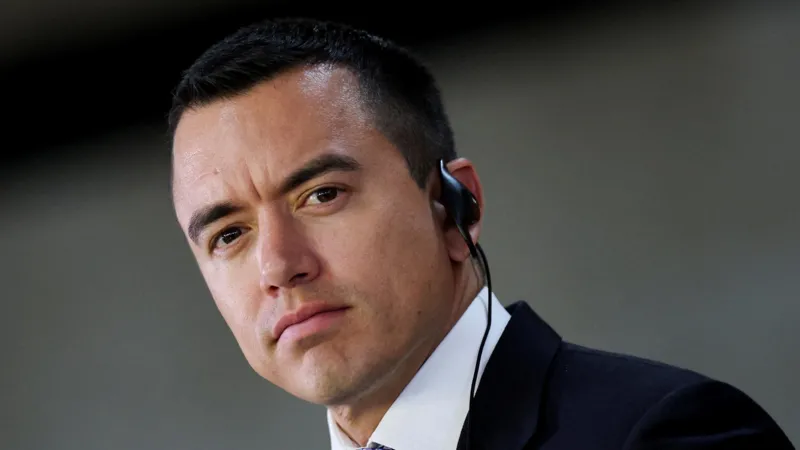Ecuadorian authorities have detained five people following what officials described as an alleged attempted assassination of President Daniel Noboa, amid ongoing nationwide protests.
According to government reports, a crowd of about 500 demonstrators attacked the president’s convoy with rocks, and investigators found “signs of bullet damage” on one of his vehicles. Noboa was not injured in the incident, officials confirmed.

Energy and Environment Minister Roberto Luque said the attack occurred as the president was travelling through a protest zone. “There are indications of bullet impacts on the vehicle, but the president is safe,” he said.
A video shared by the president’s office and seen by the BBC shows protesters pelting a convoy with stones and what appear to be three small holes in one of the car windows. The BBC said it could not independently verify that gunfire occurred.
The Confederation of Indigenous Nationalities of Ecuador (Conaie) — the country’s largest Indigenous organization — claimed that five of its members were “arbitrarily detained”, describing the arrests as part of a government crackdown on peaceful protests.
However, the presidency said the suspects would face charges of terrorism and attempted assassination.
The unrest, now entering its third week, began after Conaie declared a national strike to protest the government’s decision to end diesel fuel subsidies. Demonstrators have since staged marches, road blockades, and sit-ins across several provinces.
The Noboa administration has defended the policy, saying it will save $1.1 billion annually, funds which it plans to redirect toward support for small-scale farmers and the transport sector.

Last week, Noboa’s convoy was ambushed by protesters while travelling with senior diplomats from the United Nations, European Union, Italy, and the Vatican during a humanitarian mission. Photos shared by the president on social media showed smashed windscreens and damaged vehicles.
The government said several members of the armed forces were injured in the attack, while Conaie reported that one protester was killed during the clashes.
Conaie, which has a long history of political activism, has accused the government of arbitrary detentions and violent repression. The government, in turn, has branded the protests as “criminal acts” that threaten public order.
The Indigenous movement has played a pivotal role in Ecuador’s modern history — leading mass demonstrations that toppled three presidents between 1997 and 2005.
As tensions continue, the government has vowed to “restore calm” and protect democratic institutions, while civil society groups warn that Ecuador risks slipping into deeper political instability.




